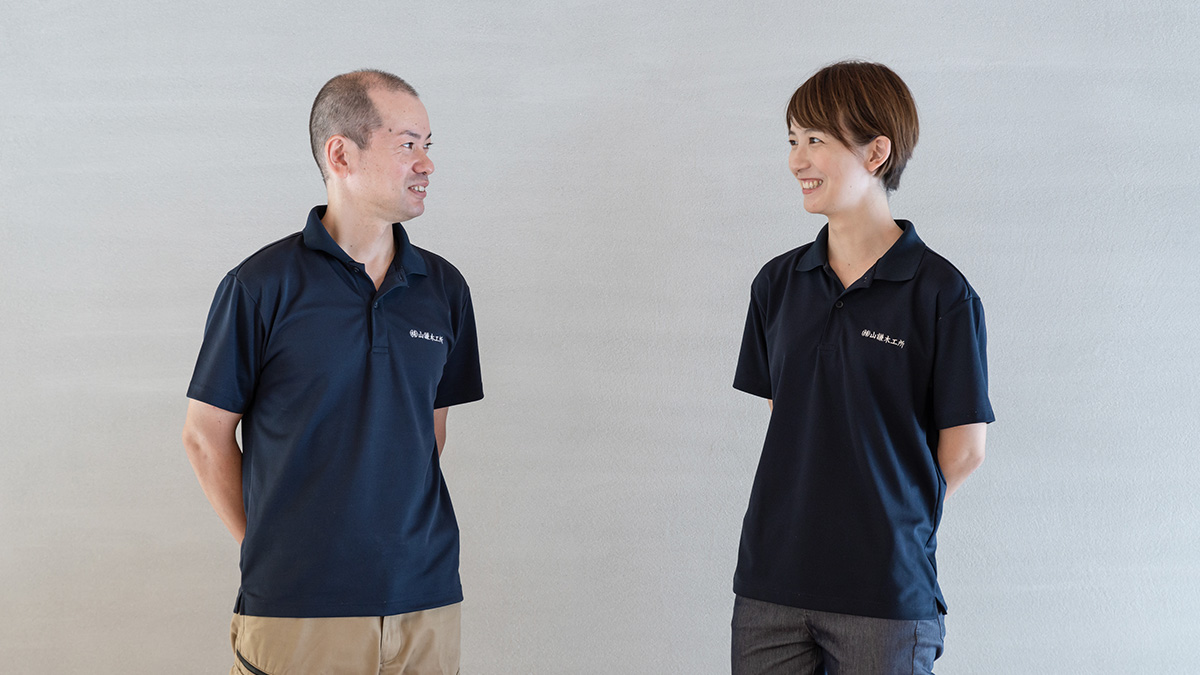A place for discovering two traditional crafts of Echizen
On the outskirts of Echizen City, in Fukui Prefecture, is an industrial park where artisans are exposed to flying sparks as they grind blade after blade with heart and soul.
The unique forged knives are showcased via two media, the knife handles and maki-e lacquer art, at Etoe. Pronounced eh-toh-eh, Etoe is the phonetic spelling of “handle and painting.”
It’s a place for discovering fresh attractions of traditional crafts in the heart of the production area.
Cultivating new possibilities of traditional craft techniques and contributing to the future of Japanese knives
The forged knives of Echizen have been handed down from artisan to artisan for some seven centuries. Knife handles play a significant role in completing the blades and making them serviceable as knives. Founded in 1912, Yamaken started out as a woodturner that use a wood lathe to make bowls, and has supported the production area ever since as a studio specializing in knife handles.
Made with proprietary patented technology and designed for knives of various uses and designs, Yamaken’s high-quality handles are in demand by knifemakers and users in and outside Japan today.
Fusing maki-e and lacquer art with knife handles and opening up new doors in the production area
Echizen maki-e lacquer art is a traditional technique for decorating Echizen lacquerware, produced in and around the Kawada area of Sabae City. Works of maki-e in Echizen are primarily “lifestyle crafts” intended for everyday use and popular with the masses, from diners and inns to general households. By contrast, works of maki-e in Kanazawa, neighboring Fukui in central-western Japan, are predominantly artistic and celebrated as high-class decoration to be appreciated with the eyes. Etoe presents works by a maki-e artist following both traditions, and introduces new possibilities of the traditional craft.

Ever since he can remember, Takuya was groomed to succeed his family business and be the fourth-generation proprietor of Yamaken. Accordingly, he majored in forestry at the Tokyo University of Agriculture. When he had just begun hunting for a job, his uncle, who served as the leader of product development at Yamaken, suddenly passed away, and Takuya returned to help the company deal with the crisis. Being a sheer amateur without a master, he embarked on production relying only on samples and materials left by his uncle. Through a process of trial and error, he stably assembled the pieces of a puzzle. Today, Takuya draws on his 20-year career as a specialist in knife handles to support the Echizen knife industry.
In high school, Yuma discovered the beauty of crafts at a museum in her home of Shizuoka. Fascinated by the coloring of lacquer, she majored in Japanese lacquer at the Tokyo University of the Arts. As an intern, she visited the Kawada area of Sabae City and had her first experience of a production area and its artisans. The concept of “lifestyle crafts” intended not for decoration but for practical use struck a chord with her. After graduation, Yuma settled in Kawada and apprenticed with Kaga maki-e artist Isshu Tamura and with Tsuji Lacquerware proprietor Toshikazu Tsuji before marrying and joining Yamaken. Today, Yuma takes advantage of her expertise as a maki-e artist to create fresh designs for knife handles.